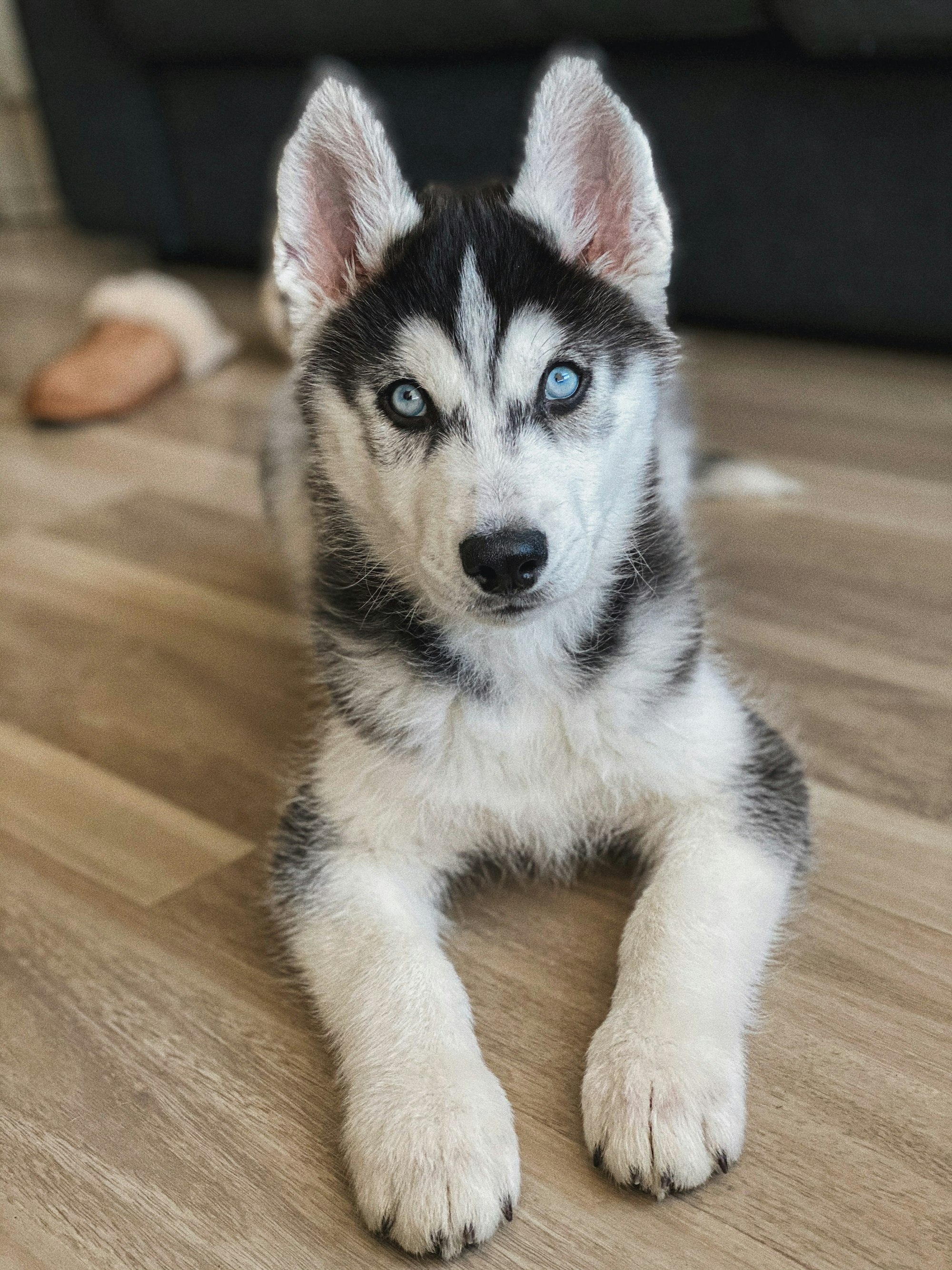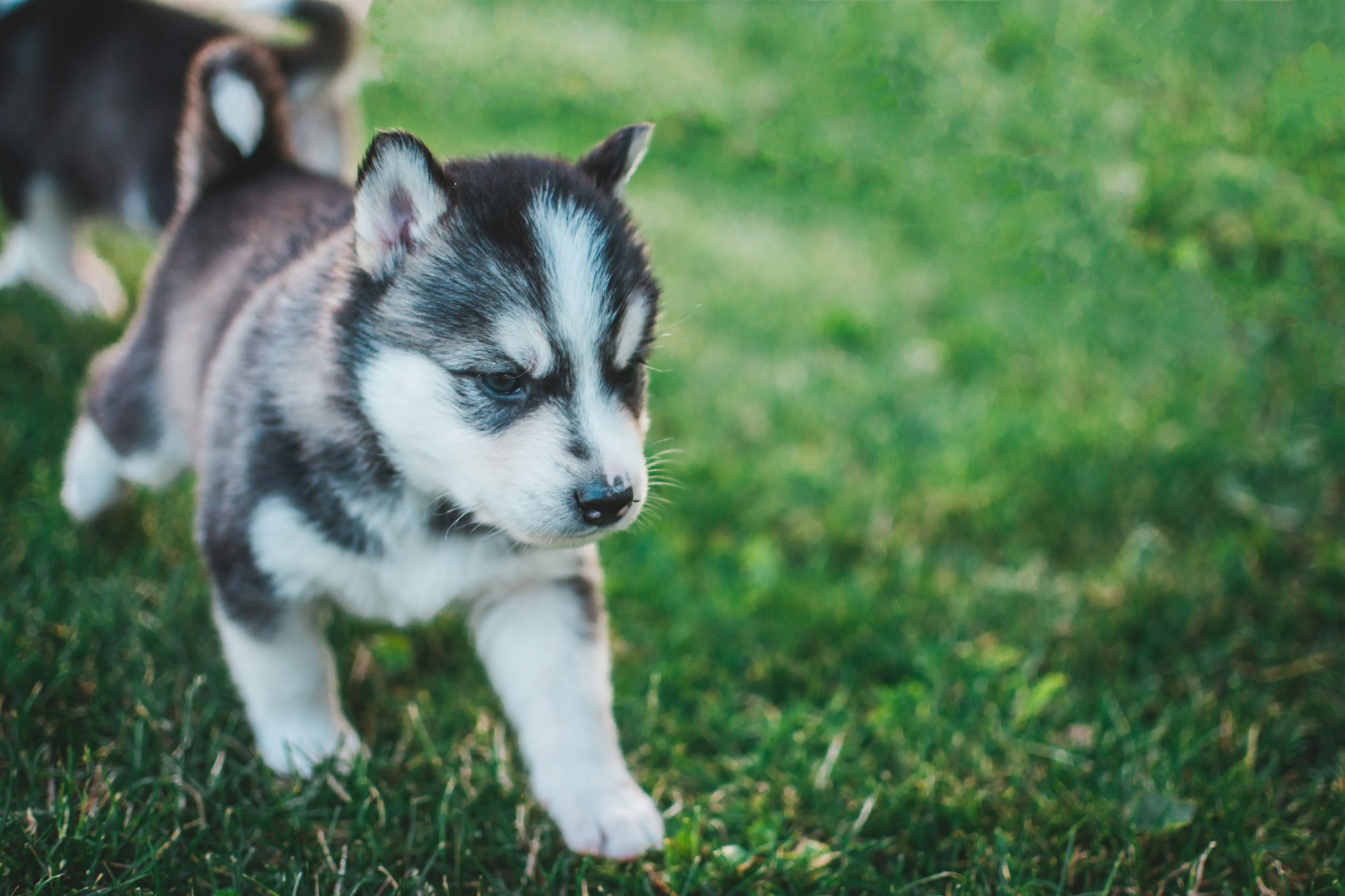Training a husky puppy can be a challenging but rewarding experience. Huskies are intelligent, active, and independent dogs that require consistent training and socialization from an early age. In this guide, we will provide you with some tips and techniques to help you train your husky puppy effectively.
Train Smarter, Not Harder with Fi Dog Collar
Training your husky puppy is a rewarding journey, and we're here to make it even easier. Use code HUSKY20 for $20 off your purchase of the Fi Dog Collar, designed to keep up with your active husky. The Fi Dog Collar offers not just location tracking but also a geofence feature that alerts you the moment your adventurous puppy steps outside designated safe zones.
Paired with the Fi app, you can monitor your puppy’s daily activities, ensuring they're getting enough exercise to stay healthy and happy, which is key in managing their boundless energy and aiding in behavior training. Equip yourself with the Fi Dog Collar and transform your training sessions into a seamless part of your daily fun. Try it today for a smarter approach to nurturing your husky puppy into a well-behaved adult.
Start Training Your Husky Puppy Early
Huskies are intelligent and stubborn dogs that require early training to establish a strong bond and prevent unwanted behaviors. Start training your husky puppy as early as possible, ideally around 8-12 weeks old. Puppies are more receptive to training during this period and can quickly learn basic commands and good behavior habits.

Use Positive Reinforcement
Huskies respond well to positive reinforcement, such as praise, treats, and toys. Use treats to reward good behavior, such as sitting, staying, and coming when called. Praise your puppy and give them a toy as a reward for a job well done. Positive reinforcement helps to build trust, strengthen the bond between you and your puppy, and make training more enjoyable.
Be Patient and Consistent
Training a husky puppy requires patience, consistency, and persistence. Huskies are independent and can take longer to learn new commands and behaviors. It is essential to be consistent in your training approach, use the same commands and rewards, and practice regularly. Repetition is key to helping your puppy learn and remember new commands.
Training a husky puppy can be a challenging process, but it's important to be patient and consistent. Remember that your puppy is still learning and may not get everything right the first time.
If your puppy doesn't respond to a command, don't get angry or frustrated. Instead, take a break and try again later. With patience and persistence, your husky puppy will eventually learn what you want them to do.
Socialization
Socialization is crucial for husky puppies. They are naturally friendly dogs, but they can become shy or aggressive if not socialized properly. The best time to socialize your husky puppy is between 8 and 16 weeks of age. Make sure to talk with your vet for ideas in your area.
Expose your puppy to different environments, people, and animals. Take your puppy for walks in the park, and invite friends and family members to visit. This will help your puppy become comfortable around strangers and prevent them from becoming aggressive. You may need to wait to introduce strange dogs till your pup is fully vaccinated.
Exercise Your Puppy
Huskies are high-energy dogs and require plenty of exercise to stay healthy and happy. Without enough exercise, they can become bored, destructive, and even aggressive. Make sure your puppy gets plenty of opportunities to run, play, and explore. Take them on walks, play fetch, try a flirt pole or even go for a jog. A tired husky puppy is a well-behaved husky puppy.

Be Consistent
Consistency is key when it comes to training your husky puppy. Establish clear rules and boundaries and stick to them. If you let your puppy get away with bad behavior one day and then punish them for the same behavior the next, they will become confused and may even start to ignore your commands. Be consistent with your training and expectations, and your puppy will learn what's expected of them.
Use Crate Training
Crate training is an effective way to house train your husky puppy and keep them safe when you're not home. A crate provides a secure and comfortable space for your puppy to rest, and it also helps prevent destructive behavior. When using a crate, make sure it's the right size for your puppy and always provide plenty of water and toys.
Avoid Harsh Punishment
Huskies are sensitive dogs, and harsh punishment can damage your relationship with them and make training much more difficult. Instead of using physical punishment, focus on positive reinforcement and redirecting bad behavior. For example, if your puppy starts chewing on your furniture, redirect their attention to a chew toy and praise them when they start chewing on it instead.
Teach Basic Commands
Teaching your husky puppy basic commands is an essential part of training. Start with simple commands such as sit, stay, come, and heel. Use a clear, firm voice and hand signals to reinforce the commands. Reward your puppy with treats or praise when they obey the commands.
Use Leash Training
Huskies are energetic dogs that require plenty of exercise and outdoor activity. Leash training is essential to ensure your puppy is safe and under control during walks. Start with a lightweight leash and collar, and gradually increase the length and weight as your puppy grows. Use positive reinforcement and treats to encourage your puppy to walk beside you and follow your commands.
Address Problem Behaviors
Huskies are notorious for their stubborn and independent nature, and it is not uncommon for them to display problem behaviors such as digging, chewing, and barking excessively. It is essential to address these behaviors promptly and consistently to prevent them from becoming habitual. Use positive reinforcement to redirect your puppy's attention to appropriate behaviors and provide plenty of exercise and mental stimulation to prevent boredom.
Exercise and Mental Stimulation
Huskies are high-energy dogs that require plenty of exercise and mental stimulation to prevent destructive behavior and maintain good physical and mental health. Provide your puppy with regular walks, playtime, and outdoor activities such as hiking or running. Offer plenty of toys, puzzle toys, and games that challenge your puppy's intelligence and problem-solving skills.

Conclusion
Training a husky puppy can be a fun and rewarding experience, but it requires patience, consistency, and positive reinforcement. Socialization, crate training, potty training, basic commands, exercise, leash training, and handling and grooming are all important aspects of husky puppy training.
Remember to start training early, be patient, and use positive reinforcement to encourage good behavior. With time and effort, your husky puppy will become a well-behaved and loyal companion.
For more helpful articles about pet-parenting tips, check out the Off Leash blog at TryFi.com.
Want to know more about TryFi.com? The Fi Dog Collar is a GPS tracking collar that not only keeps track of your dog’s location, activity levels, and sleep patterns, but it also alerts you if your dog escapes your backyard. This is the fastest way to find your dog after an escape. Try the Fi Dog Collar today!

